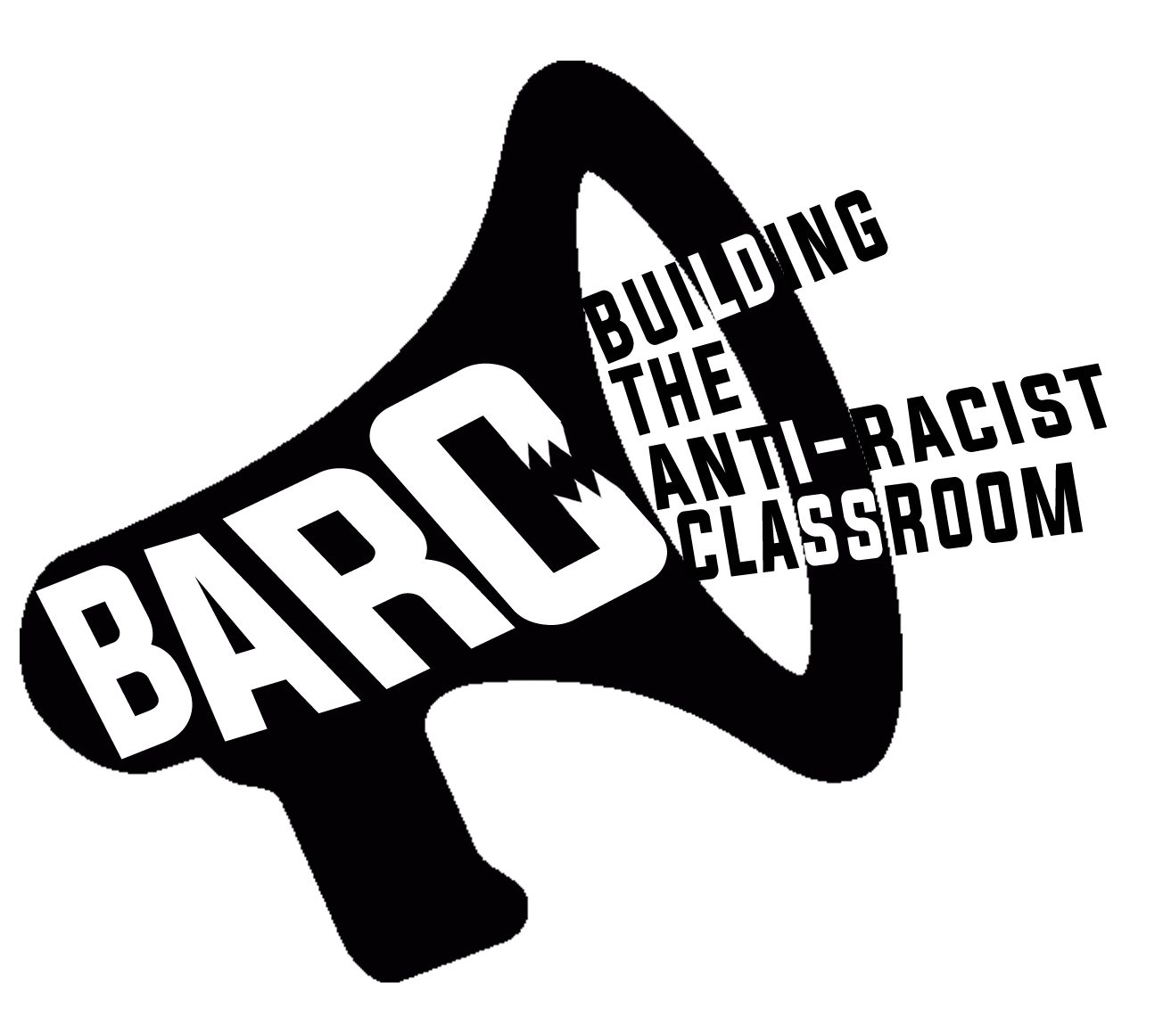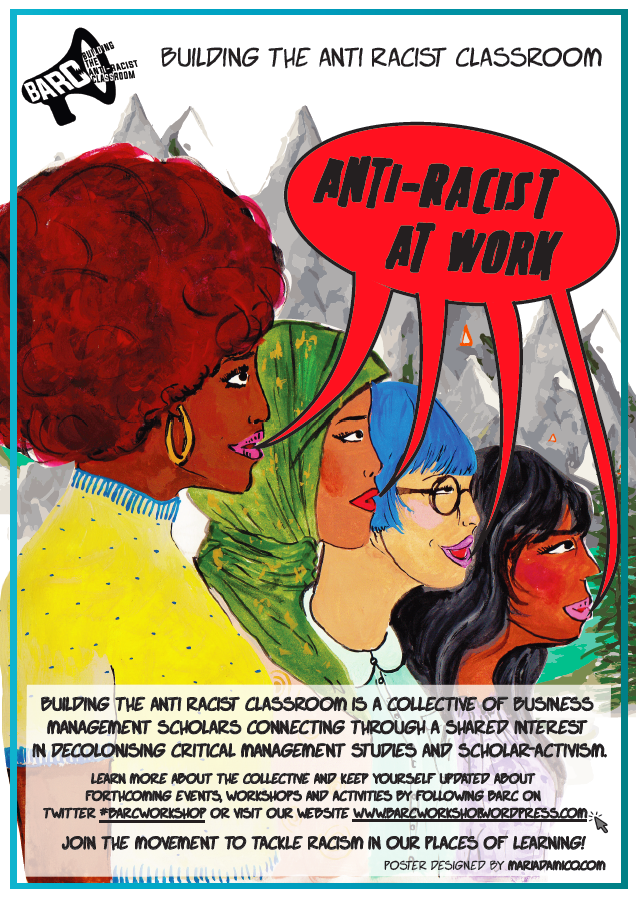#SaveGoldsmiths
#SaveUEL @saveUEL
#NoOneIsRedundant @leicesterucu
#ULSB16
Members and friends of Building the Anti-Racist Classroom write this statement to explicitly resist a web of systematic and structural violence being enacted upon the integrity of UK Higher Education and the present-future of research and knowledge creation in the UK and beyond. We write to express solidarity with our colleagues at the University of East London, Goldsmiths, University of London, and University of Leicester, who are suffering from drastic planned cuts to departments in which critical academics, some of whom are union branch leaders of colour, are being targeted. Actions taken by these institutions reflect an intensifying hostile environment for critical thought, including feminist, anti-racist, and decolonial scholarship.
We denounce the set of moves now being made destabilise, derail, or defuse scholarship that critiques the extractivist, colonial and white supremacist logics of neoliberal and surveillance capitalism. We reject the UK government’s reactionary steps to chip away at both: 1) the legitimacy of critical race theory and 2) the humanity and right to self-determination of poor, disabled, and trans people, especially women and femmes of colour, and all people subject to gender-based violence, through damaging public policy, discourse, and funding withdrawal. Finally, we find it outrageous that amid calls to protect freedom of speech, we are seeing the further consolidation of power to control the creation of knowledge through higher education with the formation of the new Advanced Research and Invention Agency, the design of which makes it opaque and inscrutable.
We critique the way metropolitan universities, rather than meaningfully advancing diverse sets of knowledges, consistently seek to silence dissent that challenges and interrupts ‘business as usual’. We identify that this activity is taking place in the context of multiple interconnected international catastrophes, including the parallel pandemics of COVID19 and white supremacist racism, conservative backlash and jingoism behind neo-imperial Anglo-American foreign policy, and the race to a data-driven future dominated by hypercapitalistic giant technology corporations. We bear witness to the economic violence caused by the eregious corruption of the Conservative government who have used public funds without due process, wasting billions of pounds of taxpayers’ money at a time of desperation for so many.
We recognise that it is the intergenerational power and traction of our solidarity and movements over decades that has made liberatory knowledge and practice thinkable, speakable, and livable. We see these ideas performatively appear as rhetoric across international journal statements, conference themes, and university marketing materials, and mark the cruel irony of these appearing at a time when people of colour are dying, losing jobs, targeted with misinformation because of the failings of a well-designed system of health inequality.
Taking a global view, we call for solidarity from our colleagues in higher education for those acting tirelessly to bring about democracy, justice, and positive social transformation not only in the UK but internationally, such as in: Haiti, Palestine, Myanmar, Brazil, Syria, Hong Kong, India, Nigeria, Ethiopia, Philippines, Chi’chil Bildagoteel on Turtle Island, and other regions that are advancing the Movement For Black Lives, including in refugee camps and migration pathways worldwide. We recognise the commonalities and connections between these internationally distributed uprisings of the people against the powerful. We care about and offer solidarity to Black, Indigenous, people of colour and allies worldwide who continue to speak out, organise, mobilise and risk their lives to oppose the atrocities and horrors of the present, as they dare to imagine a different, more humane and equitable future for all.
We invite readers of this statement to take a moment to reflect on the above, consider and propose some next steps for the BARC community, and/or co-sign this statement. We will share these ideas anonymously via our Twitter in order to begin conversations with our community. In the meantime, please follow and engage with these hashtags and accounts on Twitter and continue to advocate for and support colleagues whose livelihoods and work are under attack:
#SaveGoldsmiths
#SaveUEL @saveUEL
#NoOneIsRedundant @leicesterucu #ULSB16
BARC Collective
- Angela Martinez Dy, Loughborough University London, UK
- Sadhvi Dar, Queen Mary, University of London, UK
- Deborah Brewis, University of Bath, UK
- Helena Liu, University of Technology Sydney, Australia
Friends of BARC
- Decolonizing Sexualities Network, University of Kent, UK
- Centre SeRGJ (Sexuality, Race and Gender Justice), University of Kent, UK
- Suhraiya Jivraj, University of Kent
- Alex Faria, Escola Brasileira de Administração Pública e de Empresas, Brazil
- Joshua Kalemba, University of Newcastle, Australia
- Dhakshayini Sooriyakumaran, PhD Scholar and Board Director, Democracy in Colour, Australia
- Yassmin Abdel-Magied, writer and broadcaster, UK
- Marcela Mandiola, Universidad Alberto Hurtado, Chile
Thank you also to the members of our community who contributed feedback on this statement.

 learning environments in which the voices of white students and the English medium are often dominant.
learning environments in which the voices of white students and the English medium are often dominant.